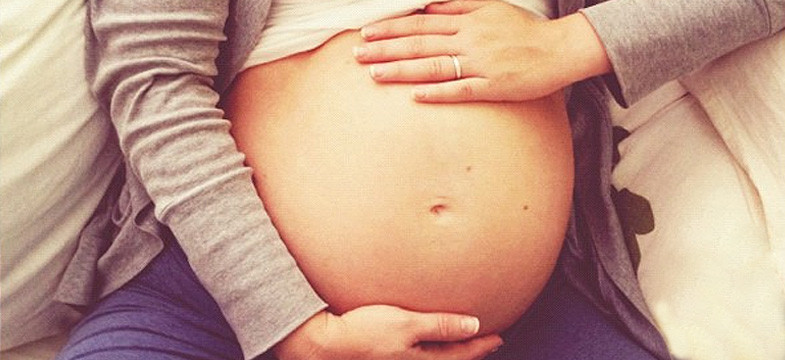Vitamin B12 and Pregnancy
Vitamin B12 plays a central role in the development of the nervous system and brain, as well as in the growth of the body in general. In the womb, unborn babies require sufficient vitamin B12 to ensure optimal development. A baby’s intake of this crucial vitamin depends on the supply of the mother. As a result, pregnant women especially should pay close attention to their vitamin B12 supply, making sure that they obtain a sufficient dosage.
The concentration of B12 in the placenta and blood of newborns is roughly double as high as the concentration in the blood of the mother; a sign for how important the vitamin B12 supply is in this phase of development.
Pregnancy and Vitamin B12 Deficiency
Just like a folic acid deficiency, vitamin B12 deficiency during pregnancy can have severe consequences. In the worst case, it can lead to miscarriage, coma or lasting neurological damage (1, 2).
In the case of a slight vitamin B12 deficiency, any developmental disorders that have arisen can usually be made up for over time by administering the vitamin; after a few months, the baby’s brain development and motor skills will be roughly age appropriate. The extent to which this corresponds to optimal development and what consequences it has for lifelong health cannot, however, be said with any certainty.
Vitamin B12 and Lactation
After birth, the body, brain and nervous system continue to develop at a rapid pace. The daily requirement for lactating women is therefore even higher than during pregnancy, which is why a good supply of vitamin B12 is hugely important in the mother at this time. In the first months of life the foundations are laid for the development of the brain, nervous system and general health. Deficiency at this time can thus have consequences that effect the child for life.
Breastmilk contains about as much vitamin B12 as the mother’s blood. Not only the mother’s own supply of the vitamin must be ensured through her diet, but also that of the child, so that there is a significantly increased need.
Studies on the children of strict vegans and vegetarians, who often have a latent vitamin B12 deficiency, showed severe developmental disorders (3-9). As numerous documented cases show, already a mild deficiency in the mother can lead to serious impairments for the child.
Vitamin B12 for Vegan and Vegetarian Mothers
The drastic findings of the above-mentioned study show just how much of a pressing issue the vitamin B12 supply of a baby is when the mother is vegan or vegetarian. Fortunately, however, it is not necessary for the mother to give up her vegan lifestyle for the duration of the pregnancy. Often vegetarian and vegan women are irritated during pregnancy when they suddenly find themselves craving meat or fish. This is mostly the body’s indication that there is a shortage of important nutrients such as iron or vitamin B12.
In addition to the supplementation of folic acid, which is urgently recommended to almost all pregnant women today, doctors advise vegetarians and vegans in particular to take B12 supplements at least whilst pregnant and breastfeeding. There is no need to run the risk of malnourishing the baby’s vitamin B12 supply.
Blood tests for iron and folic acid are often suggested by gynaecologists during pregnancy – here vegans and vegetarians can point out their diet and ask for a B12 test free of charge as well.
Vitamin B12 for Children
When children start eating baby food they still, of course, have a requirement for vitamin B12. Many vegan parents understandably want a vegan diet for their child – but there is a lot to consider. While most adults only become vegan within the course of their lives and therefore usually have a large store of vitamin B12 in the body already, this is not the case with children.
The supply in the womb and through breastmilk covers only the daily requirement; it is not enough to build up a noteworthy store in the body. This is why children in particular require a sufficient daily vitamin B12 intake, otherwise they quickly become deficient. Already in the first years of life it thus makes sense to make sure children obtain a supply of vitamin B12 via the appropriate supplements.
For children, vitamin B12 sprays have proven to be effective, as especially small children can have difficulties swallowing capsules or tablets.
Vitamin B12 Requirement for Babies, Children and Pregnant/Lactating Women
Here are the recommendations of the Institute of Medicine (IOM) for vitamin B12 daily dosage. They are valid for people with already very good health and represent the absolute minimum values that are necessary to prevent deficiency. As with adults, the dosages of supplements can – and in many cases, should – be significantly higher than these recommendations. Possible dosages are therefore also indicated below.
Age/Context | Recommended Dietary Allowance | Possible Dosage* |
Babies/toddlers | ||
0 – 6 months, breastfed | 0.4 | supply through breastmilk |
0 – 6 months, not breastfed | 0.4 | 3-5 µg |
6 – 12 months | 0.5 | 3-5 µg /day |
Young Children | ||
1 – 3 years | 0.9 | 5-10 µg /day 100 µg every 2 days |
4 – 8 years | 1.2 | 10 µg /day |
Children | ||
9 – 13 years | 1.8 | 50-100 µg /day |
14 – 18 years | 2.4 | 100 µg /day |
Teenagers and Adults | ||
From 13 years | 2.4 | 250 – 500 µg /day |
Pregnant women | 2.6 | 500 µg /day |
Breastfeeding women | 2.8 | 500 – 1000 µg /day |
*The main intake mechanism via intrinsic factor is limited to 1.5 µg/dose. Above this point, vitamin B12 is taken in via passive diffusion, through which only 1% of the dose is absorbed.
Vitamin B12 – An Indispensable Vitamin
B12 is a vital vitamin. Women who are not absolutely sure about their own vitamin B12 status and supply should not take any risks during pregnancy and breastfeeding and should take vitamin B12 supplements as a precaution.
Sources
- Allen, Lindsay H. Vitamin B12 metabolism and status during pregnancy, lactation and infancy. In: Nutrient Regulation during Pregnancy, Lactation, and Infant Growth. Springer US, 1994. S. 173-186.
- Molloy, Anne M., et al. “Effects of folate and vitamin B12 deficiencies during pregnancy on fetal, infant, and child development.” Food & Nutrition Bulletin 29.Supplement 1 (2008): 101-111.
- Simsek, Özlem Pelin, et al. “A child with vitamin B12 deficiency presenting with pancytopenia and hyperpigmentation.” Journal of pediatric hematology/oncology 26.12 (2004): 834-836.
- Sklar, Ronald. “Nutritional vitamin B12 deficiency in a breast-fed infant of a vegan-diet mother.” Clinical pediatrics 25.4 (1986): 219-221.
- Stollhoff, K., K. H. Bentele, and F. J. Schulte. “Vitamin B12 und Hirnentwicklung.” Aktuelle Neuropädiatrie 1986. Springer Berlin Heidelberg, 1987. 407-411.
- Lövblad, Karl-Olof, et al. “Retardation of myelination due to dietary vitamin B12 deficiency: cranial MRI findings.” Pediatric radiology 27.2 (1997): 155-158.
- Codazzi, Daniela, et al. “Coma and respiratory failure in a child with severe vitamin B12 deficiency.” Pediatric Critical Care Medicine 6.4 (2005): 483-485.
- Weiss, Rachel, Yacov Fogelman, and Michael Bennett. “Severe vitamin B12 deficiency in an infant associated with a maternal deficiency and a strict vegetarian diet.” Journal of pediatric hematology/oncology 26.4 (2004): 270-271.
- Wighton, M. C., et al. “Brain damage in infancy and dietary vitamin B12 deficiency.” The Medical Journal of Australia 2.1 (1979): 1-3.


